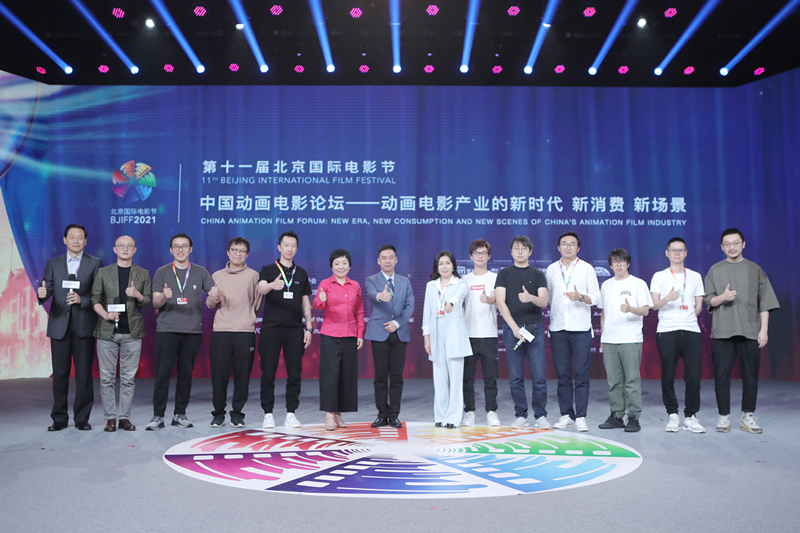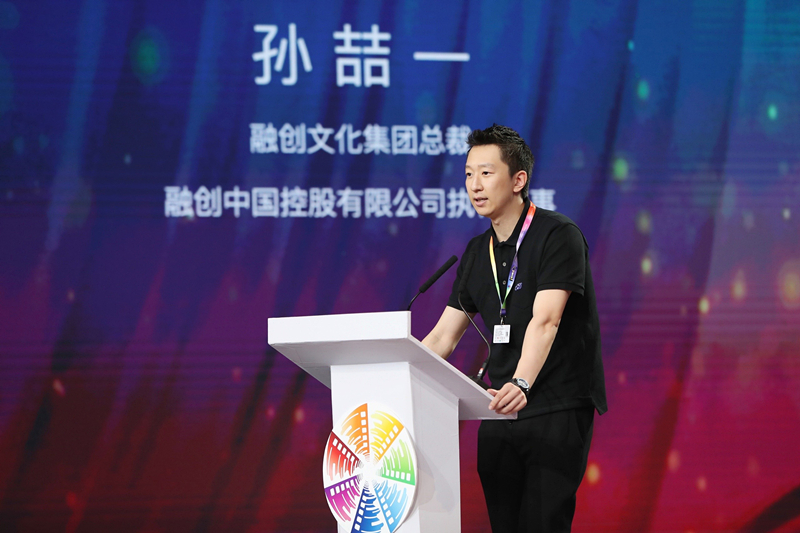Chinese animators strive for originality
- By Zhang Rui
 0 Comment(s)
0 Comment(s) Print
Print E-mail China.org.cn, September 30, 2021
E-mail China.org.cn, September 30, 2021
Chinese animators recently told China.org.cn that they're always in search of new, creative ideas outside the realm of popular traditional Chinese stories.

China's animation industry is booming, having reached an apex in 2019 when "Ne Zha" set all-time records, grossing a staggering 5 billion yuan at the box office. Nevertheless, there are still plenty of discussions around the future of the country's animation sector, and how to share Chinese stories with the world.
In fact, these topics and more were covered at the China Animation Film Forum, organized by Sunac Culture, during the 11th Beijing International Film Festival (BJIFF) on Tuesday afternoon.
At present, the status quo is such that well-established, iconic cultural stories and characters like the Monkey King from the ancient novel, "Journey to the West," the white snake spirit from Chinese folklore and Nezha from "Investiture of the Gods" are repeatedly adapted into films and animations which, though reliable moneymakers, often come at the expense of newer stories and ideas either being ignored by the market or falling short of their ambitions.
Cheng Teng, director of the animated blockbuster "Legend of Deification," said there are various elements that may affect a film's box office performance, and that franchise awareness is not always the biggest factor. He did admit, however, that from the investors' perspective, adapting a well-known story is less risky.
"What cultural heritages our ancestors have left us are so great. We have plenty of traditional Chinese stories untouched, waiting for us to explore and develop in the future," said Cheng. "As a creator, I also have my own sentiment and ambitions, as well as social responsibilities to further explore Chinese traditional culture. At the same time, I would never stop striving for originality and innovation."
Meanwhile, Shang Linlin, animation producer and vice president of Fantawild, believes that adaptations of traditional Chinese stories stand on the shoulders of giants, a recipe for success that's steeped in character and story recognition. Still, Shang concedes that "every filmmaker and every animator has a dream of originality."
Fantawild has long produced original ideas, from the animated series "Boonie Bears" to this year's "Realm of Terracotta." According to Shang, "There must be somebody who can explore the originality path, this is a difficult path, but if more and more people are trying, there will be more and more successes."
Yu Zhou, co-founder and president of Light Chaser Animation Studios, said that he believes originality and traditional stories can co-exist. For example, his studio integrated a fox demon character into their "White Snake" animated franchise. "She is a brand new character in the well-known traditional folklore story," said Yu, "and in the future, when we make the third installment of the series, she will have a bigger role. That is how originality works with the old stories, innovatively."
Yu added that in this era, an animator's mission is to present good Chinese stories to the world, and as China continues growing into an influential global power, more and more foreign audiences will be interested in those stories.
Shang agreed but noted that when it comes to animation production, China is still a weak link in the industrial chain. Likewise, fostering strong talent is of vital importance, and losing talented animators to other industries still poses a challenge.
The three joined other animators, industry insiders and experts at the China Animation Film Forum to discuss how to promote China's animation film industry.

At the forum, Sun Zheyi, president of Sunac Culture, said that as an industry investor and professional operator, his company has always been exploring the mechanisms that underpin the animation industry's infrastructure. Sunac Culture has established an animation branch that owns seven animation studios.
"I hope that Sunac Culture can explore more diversified intellectual property creations and an operational path for China's animation film industry, and improve the commercial value and competitiveness of animated intellectual properties, while integrating technology and art, creating more high-quality animation films, and impressing the world with Chinese stories to enhance the global influence of Chinese animation films," he said.






Go to Forum >>0 Comment(s)